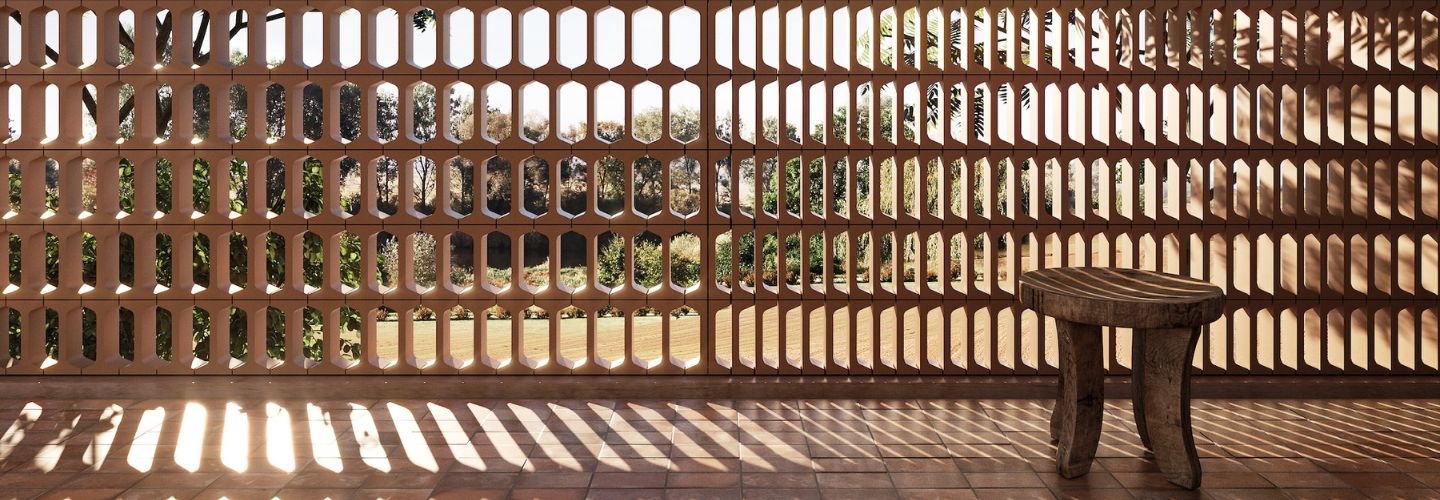Product & Trends Celebrating Earth Day: Embracing Sustainability With Beautiful, Eco-Friendly Tiles
Apr 16, 2024When we celebrated Earth Day last year with the launch of Crossville's first carbon-neutral tile collections, we promised these collections would not be the last. We've held to that promise, and this year, we added Beljn porcelain tile to our carbon-neutral lineup. Additionally, two of our tile collections, Icon and Native Metal, won Metropolis Magazine's Planet Positive Awards. These awards recognize the most creative projects and products from around the world that benefit people and the planet. The winners represent the highest achievements today in design that address climate change, ecosystem health, human health, and equity.
 Native Metal carbon-neutral porcelin tile
Native Metal carbon-neutral porcelin tile
![]() Icon terracotta tile
Icon terracotta tile
We look forward to offering many more sustainably outstanding tile collections in the future. However, it's worthwhile to note that ceramic tiles, in general, have the smallest carbon footprint of any surface material. We encourage everyone to consider all ceramic tiles as eco-friendly surfacing options.
Ceramic Tiles are Inherently Eco-Friendly
 Vibrant porcelain wall tile
Vibrant porcelain wall tile
Ceramic tiles are considered highly sustainable and environmentally friendly. They are made from natural materials (mainly clay and water), do not harm the environment, and can be recycled easily. Moreover, they can be cleaned without toxic chemicals and have a long lifespan. Additionally, the manufacturing process for ceramic tiles is highly efficient.
Obtaining the Material to Manufacture Ceramic Tile
 Woodwerk porcelain wood-look tile
Woodwerk porcelain wood-look tile
Ceramic tiles are made from natural clay, which is often found near factories, reducing extraction, transportation, and fuel costs. In many cases, the process of extracting natural clay for ceramic tile production involves using clay from deposits near the factories. This minimizes the need for extensive extraction, transportation, and fuel costs, making it a more efficient and eco-friendly process. By utilizing clay from nearby sources, the carbon footprint associated with raw materials acquisition is significantly reduced.
Ceramic Tiles Can Contribute to Good Indoor Air Quality
 Arkquartz porcelain floor and wall tile
Arkquartz porcelain floor and wall tile
Indoor Air Quality (IAQ) is a significant concern for both design professionals and consumers. The presence of environmental contaminants and microbial growth in buildings, finishes, and furniture has led to an increase in Sick Building Syndrome, Building Related Illness, and Multiple Chemical Sensitivity. Ceramic tiles are a safe choice as they do not contain dangerous chemicals or VOCs (volatile organic compounds).
Ceramic Tiles Have a Long Lifespan
 Cotto Moderno porcelain tile
Cotto Moderno porcelain tile
Ceramic tiles have a longer lifespan than other surfacing materials, which need to be replaced every 5-10 years. In fact, ceramic tiles can last up to 50 years or more, making them a cost-effective and environmentally friendly choice. This long lifecycle reduces negative environmental impacts, resource use, and demolition waste, making ceramic tiles a smart choice compared to flooring or surfacing products that need frequent replacement.
Lean Disposal of Ceramic Tiles
 Marrakesh ceramic wall tile
Marrakesh ceramic wall tile
What happens when tiles or the buildings they are installed in reach the end of their useful lives or undergo renovations? According to the U.S. Environmental Protection Agency (EPA) criteria, ceramic tiles are the perfect material for "clean fill" since they are 100% inert. Being non-soluble in water, they cannot decompose or release harmful liquids into the earth or atmosphere.
Ceramic Tiles are Easy to Clean and Maintain

Rebels porcelain tile for walls and floors
Ceramic tiles can be cleaned effortlessly with just a mop and warm water. If you encounter heavy soil, you can use pH-neutral cleaners. There's no need for toxic chemicals or solvents that harm our environment and our drinking water. It's easy to keep your ceramic tiles clean and hygienic without risking our planet's health
How Can Ceramic Tiles Be Even More Environmentally Friendly?

Textiture ceramic wall tile
Although ceramic tiles are naturally eco-friendly, their sustainability can be improved by using recycled or reclaimed waste materials during manufacturing.
Recycling and Reclaiming Tiles

Hide and Sleek ceramic wall tile
Ceramic tile can be recycled at the end of its lifecycle instead of going to a landfill. The tile can be ground up and used to make new tiles or used as aggregate in construction projects such as concrete, roads, or railways.
Producing Ceramic Tiles Efficiently
 Glow ceramic wall tile
Glow ceramic wall tile
Efficient production is key to sustainable building materials. Minimizing waste and energy use can enhance ceramic tile sustainability.
Third-Party Certifications
 Tesserae porcelain floor and wall tile
Tesserae porcelain floor and wall tile
Third-party certifications assure architects, designers, specifiers, and consumers that a manufacturer's sustainability claims are accurate. One such certification is Green Squared, a multi-attribute sustainability standard developed by The Tile Council of North America. The certification indicates that a manufacturer meets criteria in all categories, including environmental product characteristics, environmental product manufacturing, raw material extraction, end-of-life management, progressive corporate governance, and innovation. Many Crossville Studios tile collections are Green Squared Certified.
Reach Out To Us!
With 27 dedicated tile showrooms, we offer local support and are here to answer all your questions and guide your selections for sustainable design projects. Reach out to a showroom near you today.


